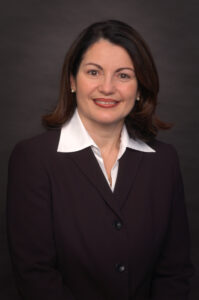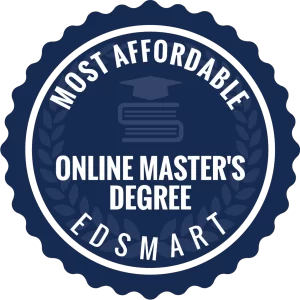Tell us a little about yourself.
Born in southern Louisiana, grew up there and in Tennessee. I first went to Japan as an undergrad at UT-Chattanooga and from there have focused on Asian studies. Attended universities in China, Hawaii, Wisconsin, and Nagoya (Japan), and then did a Fulbright doctoral year at Waseda University in Tokyo. Finished the Ph.D. in Japanese history at the University of Wisconsin and then came straight to Japan to start working. Have lived in Japan for probably around ten years in all, and have also lived in China and South Korea.
I am married to my best friend. We both love animals, and when we have time we also like to take drives down to the Pacific Ocean and around the back roads of rural Japan.
What are you doing now?
I may possibly have the distinction—not sure, but I must be a contender—of being the most remote student in HACS history. I did the whole program (MA Philosophy—Christian Wisdom) from Japan, where I live and work.
I teach at a small Japanese college and research and write about Japanese history as my day job. My main areas of focus are Japanese law, history, and politics. My recent books are Law and Society in Imperial Japan: Suehiro Izutaro and the Search for Equity (Cambria, 2020). I’ve also published scholarly essays at Dao, Studia Gilsoniana, the Michigan Historical Review, the Proceedings of the Historical Awareness Research Committee, Logos, Reitaku Review, and a few other journals. A book chapter on religious philosophy in the writings of Confucius is due out soon in an edited volume put together by the legendary HACS professor, Peter Redpath.
I am very blessed to be able to contribute writings to the Seirondan opinion page of the Sankei Shimbun newspaper in Tokyo, the Japan Forum for Strategic Studies journal, New Oxford Review, The Remnant, the Japan Institute for National Fundamentals journal, The Imaginative Conservative, Abbeville Institute, Crisis, Japan Forward, Kokutai Bunka, Asia Times, the University Bookman, and some other outlets.
I hope to go back to HACS for a Post-Master’s in the history of philosophy, and would also like to study Indian philosophy formally.
Why did you decide to study at Holy Apostles?
I came to Holy Apostles by the grace of God. I had just finished a Ph.D. program in Japanese history and was ready to do some serious studying—which is how I was led to Holy Apostles.
Ph.D. programs at secular universities are mainly ideological, and students are coached to mimic “successful” professors in order to say the right things to get the best jobs and publishing contracts. It’s a tremendously sterile, anti-intellectual milieu.
Holy Apostles was a huge gust of fresh air! I started off with Prof. Redpath’s course on The One and the Many and was floored. It was probably one of the best classes I ever took in my life, perhaps THE best. The rest of my time at HACS was just like that, one amazing discovery of eternal truth after another. I wouldn’t trade my three-and-a-half years at Holy Apostles for anything in the world.
What was your favorite course you took while at Holy Apostles?
Probably Philosophical Anthropology, with Prof. Randall Colton, Dante, with Prof. Ferri, and The True, the False, the Lie, and the Fake, with Prof. Curtis Hancock
How has your education helped you in your life?
HACS has given me a completely new perspective on my life and the world around me. The MA program at HACS was my first experience studying philosophy in a structured setting, and being able to see how the different strands of ideas I had been picking up here and there before fit together into a much bigger whole was such a grace. I never thought of myself as a philosopher, and I still don’t claim the title, but HACS taught me that even I can think things through philosophically.
Since graduating from Holy Apostles, what has been your greatest personal and professional accomplishments?
My scholarly work continues–I am set to contribute to some book projects over the next few months, will take part in some legal history and Asian history conferences, and am working on several new chapters and essays, as well as a handful of new books. A colleague and I are starting a new book series on East Asian History, and I am now putting together proposals for the first round of books and just finished translating a long essay by a Japanese legal scholar on legal fictions for that series.
Personally, my greatest accomplishment since leaving HACS is that I am trying to learn to see God’s love in the world around me. This is not really an accomplishment, but a requirement of being a human being, something that HACS taught me should be at the very center of what I do.
How has your education help you serve in your community or family?
Prof. Mahfood always stressed community in his Dante lectures, and this has helped me to see myself as part of a much bigger world than just myself. Speaking the truth forthrightly and with love is what we should all be doing in and for the world. Listening to others is also indispensable to that mission. Holy Apostles was the place where I saw all of these various aspects of communal living come together into one coherent piece.
Were you inspired by any particular person at Holy Apostles?
All of them! Prof. Redpath, Prof. Curtis, Prof. Colton, Prof. Ferri–these and my other professors all showed me things that I never would have discovered on my own. Dr. Elizabeth Rex also deserves special mention. I attended one of her talks on embryos from a pro-life position and was overwhelmed by the quality of the discussion and her loving approach to life issues.
I’d also like to express my appreciation for Prof. Timothy Smith and Prof. Philippe Yates. They teach subjects that I personally find challenging, but their calm presentation and lucid explication made the difference. I thought it would be logically impossible for me to pass a logic class–Prof. Yates showed me that I was wrong, and also why it was illogical of me to think that logic wasn’t for me!
Other Information You Feel Like Sharing:
I could never have done the HACS program without the support of my wife and family.

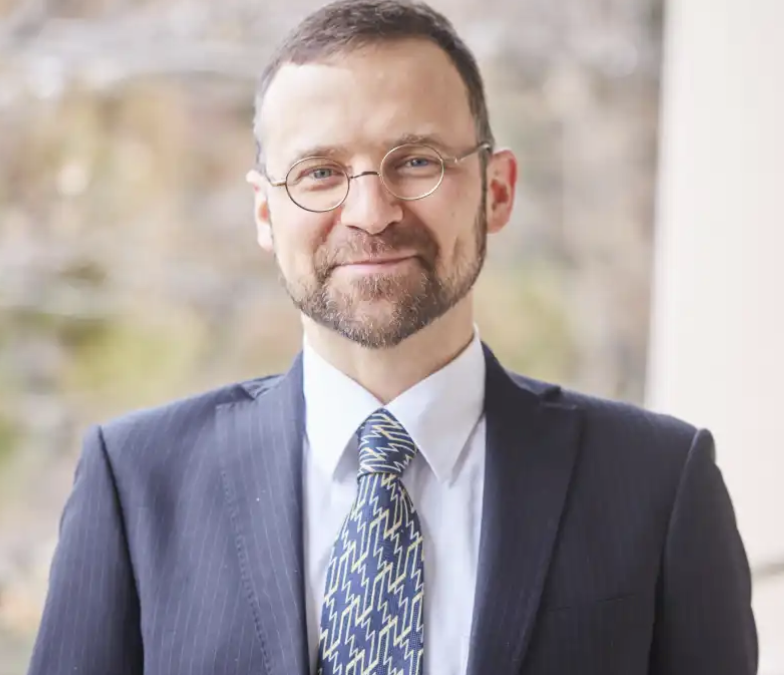
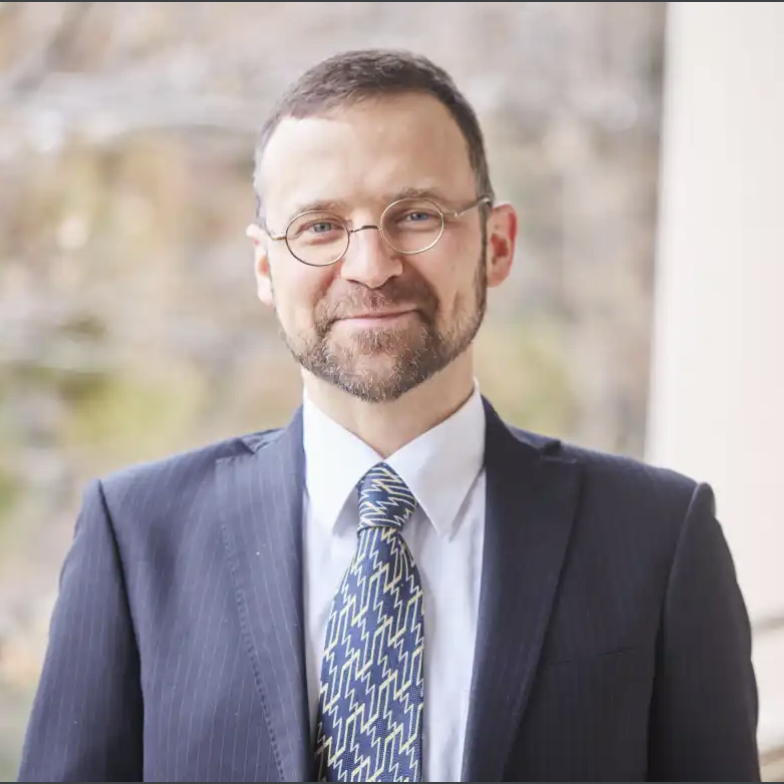
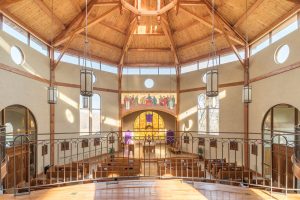 Fast-forward fifty-five years later, and Holy Apostles College & Seminary continues to stand proud. Its campus stretches gracefully across Cromwell’s beautiful, rolling hills. It continues to serve people of all ages, and from all walks of life, in their individual quests for wisdom and holiness in their vocations. Both in its traditional on-campus setting and through its pioneering, affordable,
Fast-forward fifty-five years later, and Holy Apostles College & Seminary continues to stand proud. Its campus stretches gracefully across Cromwell’s beautiful, rolling hills. It continues to serve people of all ages, and from all walks of life, in their individual quests for wisdom and holiness in their vocations. Both in its traditional on-campus setting and through its pioneering, affordable, 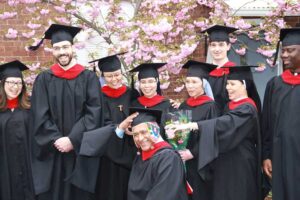 The diversity of students is made possible by the asynchronous nature of Holy Apostles’ classes. This freedom has “made all the difference” for Ben of the
The diversity of students is made possible by the asynchronous nature of Holy Apostles’ classes. This freedom has “made all the difference” for Ben of the 